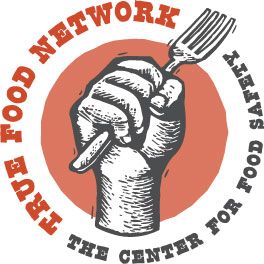5 min read
Written by Annette Carroll

The FRESH organization is a US based advocacy group which is passionate about sustainable food, something WR “ Foodies” can identify with.
The recent FRESH Right to Know campaign collected nearly one million signatures to get the GMO labelling issue on the upcoming ballot in California this fall. See Fresh the Movie for more details.
I find the email alerts and movies from FRESH to be very informative and in many cases indicative of many North American urban/rural communities like Waterloo Region. Here is their most recent email alert.
Since watching the Jamie Oliver and his “pink slime” TED-x talk I have concerns about “What I don’t know”, regarding the food I eat. I suppose naively I believed that the label would flag any non natural products and that all grains are wholesome & nutritious. The FRESH webite uses many tools like social media, petitions and movies to reach a global population. After joining the FRESH e-alert I am more aware that food, in many forms, can be genetically modified … and the producer doesn’t need to tell me. Farmageddon tells the story of small, family farms similar to Waterloo Region’s farming community, providing safe, healthy foods. The FRESH food movement strongly advocate policy change regarding GMO’s and forced the issue to be elevated to a political platform in the US. I support FRESH on many levels and want to share the opportunity with other Foodies in our region.
FRESH just reported on their successful campaign. Check out their Tips list below:

They did it! In a sweeping show of support for labeling genetically modified (GM) foods, advocates for the California Right to Know campaign turned in 971,126 signatures, setting the stage for a vote in November on whether GM foods should be clearly marked and labeled. That’s nearly a million signatures collected in ten weeks, almost double the number required to place an issue on the ballot. What an exciting development!
Here at FRESH, we are long-time advocates of consumers’ right to know what is in their food. After all, GM ingredients show up in 75% of processed foods in US groceries, but they’re not labeled, so consumers cannot discern GM products from natural ones. Only through knowledge and education can we fight back against industrialized agribusiness.
In the meantime, what can you do to avoid GM foods in your diet? Here are a few tips to guide you:
- Choose organic
- To earn the “certified organic” label, a product cannot contain any GM ingredients, so buying organic foods is the easiest way to ensure your food is GMO-free. This applies even to products labeled “made with organic ingredients,” which must be 100% GMO-free, even if not all their ingredients meet other organic standards.
- Look for “non-GMO” labels
- Though you’re unlikely to see a product labeled as containing GM ingredients (at least in the US), many companies want consumers to know that a product is GMO-free. Some limit their claim to only high-risk ingredients, like corn, soy and the others listed below.
- Steer clear of products containing high-risk ingredients
- If you can’t find an organic or clearly labeled non-GMO alternative, you can protect yourself by simply not buying products that contain ingredients most likely to be genetically modified. These include:
- Corn: corn flour, corn meal, corn starch, corn oil, corn gluten, and corn syrup; sweeteners like fructose, dextrose, and sucrose
Soy: soy lecithin, soy protein, soy flour, isoflavone; vegetable oil and vegetable protein; tofu, tamari, tempeh, and some alternative meat and dairy products not specifically labeled as free of GM-soy
Canola: canola oil (also known as rapeseed oil)
Cotton: cottonseed oil
Margarine: almost always contains GM oil (either soy, corn, cottonseed, or canola)
Sugar: GM sugar beets were recently approved for planting. To avoid GM sugar, purchase organic bulk sugar and products sweetened with 100% cane sugar, evaporated cane juice, agave, or organic/non-GMO sugar.
Artificial Sweeteners: aspartame (NutraSweetTM and EqualTM)
Meat, eggs, and dairy products: Avoid products from animals who have eaten GM-feed and dairy products containing the GM hormone rBGH/rBST
Papayas: About half of the Hawaiian papaya crop is now GM.
Vegetables: A small number of zucchini, sweet corn, and yellow crookneck squash are GM. - Carry a non-GMO shopping guide
- Several handy tools and tip sheets are available to help you make informed choices at the grocery store. Here are a few to choose from:

True Food Shoppers’ Guide from the Center for Food Safety, available in print and as a free mobile app for iPhone and Android

The Non-GMO Project Online Product Directory, also available as a free app for the iPhone and iPod Touch

The Non-GMO Shopping Guidefrom the Institute for Responsible Technology and the Non-GMO Project, available online, as a PDF download, or in a handy pocket version
For more information on the dangers posed by GMOs and why we can’t continue to ignore these risks, see our blog post What You Don’t Know About GMOs CAN Hurt You.
Sincerely,
Ana & Crystal
The FRESH Team
